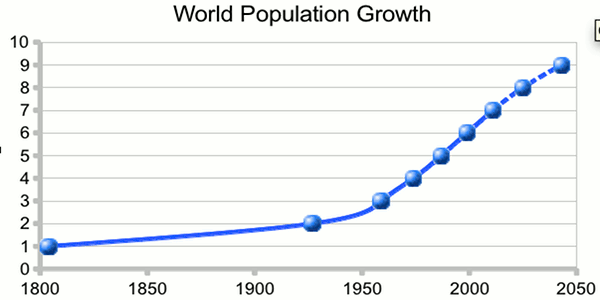Those of us who are christians in the western world are currently facing one of the biggest ethical challenges we have ever faced. Consider the following population graph – the world’s 7 billionth person is about to be born.

The world we live in
Poverty
Poverty has been reduced in recent times, from 1.9 billion people, or 40% of the world’s population living in extreme poverty 30 years ago, to 1.4 billion now. However the effects of population growth and climate change will place great pressure on the world’s food and water resources, and the poor will be least able to cope.
Aspirations
People living in the developing world see the affluence of the west and are beginning to emulate it. (For example, there is increasing demand for cars – 20 thousand in 1900, 800 million in 2002 and an estimated 2 billion in 2030. And the oil is running out!) This increase in the material standard of living will place additional strain on our planet – most western countries are already using far more than our share of the world’s resources.
Longer lives
Living conditions around the world have improved over the past century. In the past 60 years, average life expectancy has increased from 48 to 68 years, while infant mortality has decresed from 133 per 1000 births to 46. But it will be a challenge to continue this progress.
Youth and age
Population growth changes demographics. Fast growth means a young population, many children, and challenges to feed, care for and educate them. Slowing growth down too fast (as in China) can lead to an aging population and fewer working people to care for them.
Africa
Africa faces incredible problems, with population predicted to more than treble this century while water and food is under threat from climate change.
Facing the challenges
Jesus said that we would be judged by how we cared for the poor and suffering (Matthew 25:31-46). James makes it very clear that our wealth can blind us to God’s command that we care for the poor (James 1:27, 2:15-16).
We christians in the western world have a standard of living that is probably higher than the world can sustain. If the poor are to be fed and educated, and given an opportunity to climb out of poverty, we are going to have to help, either individually, or via the governments we elect. We may have to be prepared to give up some of our affluence.
Over the next few weeks I will explore some things we can do to make a start.